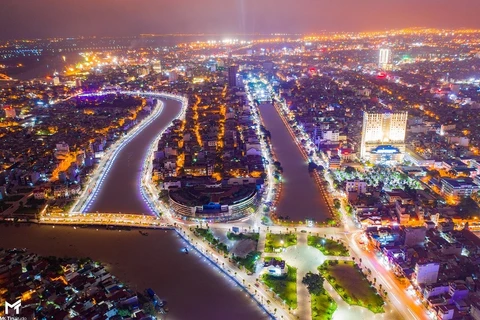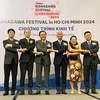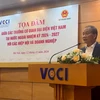Hanoi (VNA) – Digital transformation has been essential for the tourism sector in the post-COVID-19 period by optimising operations, cutting expenses, improving efficiency, and attracting more visitors.
From 2015 to 2019, online searches for tourism information surged over 32-fold in Vietnam. Up to 88% of domestic travellers looked up information on the internet, and there were over 5 million searches in Vietnamese for tourism products each month, according to the Vietnam Tourism Association.
However, the effectiveness of digital transformation within Vietnamese travel companies remained modest during that period, with up to 80% of the domestic online tourism market held by foreign online travel agents (OTAs) such as Agoda.com, Booking.com, Traveloka.com, and Expedia.com. Local OTAs like Vinabooking.vn, Chudu24.com, Ivivu.com, VNTrip, Mytour.vn, and Gotadi only made up 20% with a limited number of transactions.
Ngo Minh Duc, founder of Gotadi - a provider of online travel services, said that to gain a firm foothold in the domestic market, businesses should master information technology, which is also why his firm has invested in an OTA platform.
In particular, in the post-pandemic period, when most consumption habits have changed and moved to online platforms, it’s time for travel businesses to enter a fierce competition on cyberspace, from client access to tickets, tours and room bookings.
This new trend also means business efficiency, Chairman of the Vietnam Tourism Association Vu The Binh said, noting that as travellers switch to booking services online and companies do not act accordingly, they will be missing out.
Travelogy Vietnam has undergone this transformation. Thanks to the application of digital technology, each of its employees can now handle 500 bookings per day, instead of 10 employees needed to deal with 100 bookings per day in the past.
Recently, Crystabaya Pte Ltd, an online platform providing tourism services, has applied blockchain to help clients directly monitor the availability of rooms and other services. The application has also reportedly assisted hotel and resort owners to cut down expenses as their data is stored safely using this technology.
Apart from enterprises, ministries, sectors, and local authorities are also acting to meet the demand for “contactless” services by stepping up technology use in handling exit - entry procedures, promoting tourism, and selling tickets to tourist sites.
Digital transformation could mark the start of a strong recovery and development period of the entire tourism sector after the COVID-19 pandemic./.

























